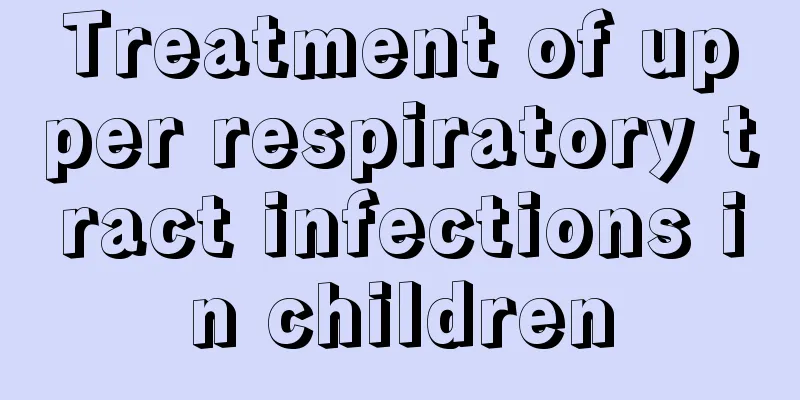Baby's tooth growth pattern

|
Babies do not have teeth when they are born, but as they continue to grow, teeth will appear when they are seven or eight months old. The growth pattern of children's teeth may change, and it is normal to be delayed by a few months or advanced by a few months. During the teething period, parents must take good care of their children's teeth to avoid trauma. Although children do not have teeth when they are born, they already have the germs of deciduous teeth in the alveoli of the upper and lower jaws. The health and nutrition of the mother during pregnancy directly affect the maturity of the tooth germs, so every mother should pay attention to a balanced diet during pregnancy, eat more vegetables, soy products, dairy products and other foods rich in calcium, to lay a good foundation for the baby to have a set of healthy teeth.Generally speaking, children start to grow deciduous teeth when they are six months old, but some children may start to grow teeth as early as four months or as late as ten months. This depends on each person's physical condition. All of these are within the normal range, and any earlier or later is abnormal. There are 20 deciduous teeth in total. Generally, the two lower central incisors (lower front teeth) come out first, followed by the two upper central incisors (upper front teeth), and later the upper lateral incisors and lower lateral incisors. By the age of 1, 8 incisors will have grown. The newly grown front teeth will have a gap in the middle and be slightly tilted inwards. No special treatment is needed, as they will grow out naturally. Baby teething sequence chart Baby teething sequence by age5-10 months: Two primary central incisors grow on the upper and lower sides 6-14 months: Two deciduous lateral incisors grow on the upper and lower sides 10-17 months: Two first deciduous molars grow 18-24 months: Two upper and lower deciduous canines grow 20-30 months: Two second deciduous molars grow on the upper and lower sides Characteristics of baby teething When a child is born, the deciduous teeth are grown in the gums and are ready to grow. However, the time when teeth begin to grow and the speed at which they grow completely vary greatly from person to person. It has been statistically shown that, on average, 10% of babies start to grow teeth before 5 months after birth, 50% before 7 months, and 90% before 10 months. In addition, there are babies commonly known as "devil teeth", that is, babies who have grown teeth when they are born, and there are also babies who have not grown teeth even after 10 months of birth. The latter accounts for about 10%. When babies grow teeth, the front teeth or the two middle teeth below usually erupt first, but the order of tooth growth may be a little different for some babies. The order in which your baby's teeth grow is generally unimportant. If the child develops normally and has no special diseases, there is no need to worry even if the teeth start to grow a little late. You can go for a physical examination when it is convenient.Teething is a physiological process and does not cause much pain. When the teeth are about to erupt, they will compress the nerves of the gums and cause itching of the gums. The child will feel a little uncomfortable and like to put his fingers in his mouth to suck or bite the nipple while feeding. At this time, you should pay attention to the cleanliness of the oral cavity. You can also give the child some slightly harder things to bite, such as biscuits, steamed buns, etc. to make him feel better. Some children may experience symptoms such as irritability, restless sleep, low fever, increased saliva, and loss of appetite when their teeth are growing. These are temporary phenomena, and parents do not need to panic, as they will disappear after the teeth grow out. In order to make children grow good teeth, they should cultivate good hygiene habits from an early age. Do not drink sugary water or eat sweets before going to bed. You can drink some boiled water to rinse your mouth. Correct your child's bad habits of sucking his fingers and empty nipples, so as to avoid crooked teeth or pursed lips over time. Pay attention to supplementing your child with calcium and cod liver oil, and add various complementary foods to your child in time, such as steamed buns, bread and other solid foods. This not only supplements nutrition, but is also beneficial to the development of deciduous teeth and the improvement of chewing ability. |
<<: Is it normal to lose teeth at 5 years old?
>>: Baby's lower teeth cover the upper
Recommend
What can I eat to make my child grow taller?
As people's aesthetics are improving, they ap...
What material is good for baby bottles?
For mothers with babies at home, the most concern...
What is the order of children's tooth replacement?
As children grow older, they need to replace thei...
The child's body itches
The child's body is in the development stage,...
What can babies eat to treat constipation faster?
Spring is here, and although the climate is a lit...
Whooping cough symptoms and prevention in children
Whooping cough in children is a common phenomenon...
What to do if your baby has bleeding gums due to inflammation
The baby's body is very fragile and it is eas...
What are the recipes for picky eaters?
Children nowadays live a carefree life and are ca...
Tuberculosis in children
Diseases such as childhood tuberculosis are actua...
How to take care of a baby who has a fever and keeps crying
For most babies, crying is a very normal thing, b...
What medicine should children take for diarrhea in autumn?
Maybe many of our children often suffer from diar...
What causes sinusitis in children?
Nowadays, sinusitis is a disease that many of our...
What to do if children have hip dysplasia?
Anyone who knows something about the human physio...
Five symptoms of sleep convulsions in babies
I believe that watching their baby fall asleep sw...
What to do if a child has a rash
When children are young, they usually don't p...









